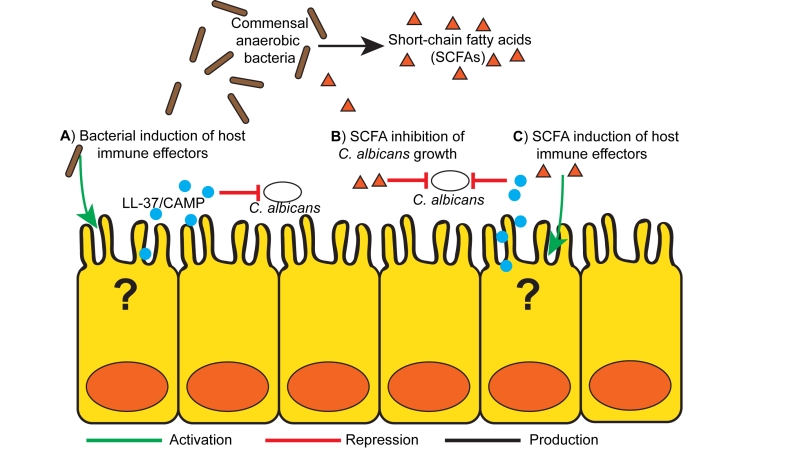FIGURE 1: Proposed mechanism of gut bacteria mediated Candida albicans gastrointestinal colonization resistance. A) Commensal gut bacteria, particularly obligate anaerobes (i.e. Bacteriodetes thetaiotami-cron, Blautia producta), induce production of colonic host immune effectors, specifically antimicrobial peptides such as LL-37/CAMP which have Candicidal activity. B) Bacterially derived fermentation products, short-chain fatty acids (SCFAs) may have a direct effect on C. albicans growth and colonization. C) SCFAs can induce production of colonic antimicrobial peptides, including cathelicidins (LL-37/CAMP) and defensins that have activity against C. albicans.
By continuing to use the site, you agree to the use of cookies. more information
The cookie settings on this website are set to "allow cookies" to give you the best browsing experience possible. If you continue to use this website without changing your cookie settings or you click "Accept" below then you are consenting to this. Please refer to our "privacy statement" and our "terms of use" for further information.

